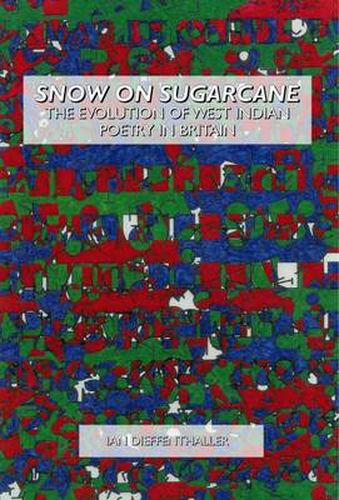Readings Newsletter
Become a Readings Member to make your shopping experience even easier.
Sign in or sign up for free!
You’re not far away from qualifying for FREE standard shipping within Australia
You’ve qualified for FREE standard shipping within Australia
The cart is loading…






As recently as the early 1970s, scholars were able to argue conclusively for the existence of West Indian poetry as distinct from the English canon. Because much of its development occurred in Britain, hybridising with British practice was inevitable and this book makes a case for a West Indian British poetry which at first parallels and later becomes distinct from either of its parent bodies, relying instead on a cross-cultural aesthetic that continues to evolve. Early chapters examine the work of Claude McKay, Una Marson and Phyllis Allfrey in tandem with West Indian novels and calypsos of the 1950s and incipient critical practice fronted by Kamau Brathwaite. Subsequent chapters chart the influence of the Caribbean Artists Movement and poets such as John La Rose, Andrew Salkey and Faustin Charles. The politicising of the West Indian British community in the 1970s gave rise to the work of Linton Kwesi Johnson and ‘dub’ poetry. It also initiated the concept of ‘black Britain,’ which continues to obscure developments in West Indian British poetry into the twenty-first century. Later chapters examine these developments and chronicle the literary strategies of poets such as E. A. Markham, John Agard, James Berry, Fred D'Aguiar, Amryl Johnson and Grace Nichols, who along with poets from a non-West Indian heritage enrich the new hybrid voice and ensure its continued existence.In History of the Voice, Kamau Brathwaite questioned the cultural basis of West Indian children in the 1950s who wrote of snow falling on cane fields. It is in West Indian British poetry that such collisions are made possible - and culturally viable.
$9.00 standard shipping within Australia
FREE standard shipping within Australia for orders over $100.00
Express & International shipping calculated at checkout
As recently as the early 1970s, scholars were able to argue conclusively for the existence of West Indian poetry as distinct from the English canon. Because much of its development occurred in Britain, hybridising with British practice was inevitable and this book makes a case for a West Indian British poetry which at first parallels and later becomes distinct from either of its parent bodies, relying instead on a cross-cultural aesthetic that continues to evolve. Early chapters examine the work of Claude McKay, Una Marson and Phyllis Allfrey in tandem with West Indian novels and calypsos of the 1950s and incipient critical practice fronted by Kamau Brathwaite. Subsequent chapters chart the influence of the Caribbean Artists Movement and poets such as John La Rose, Andrew Salkey and Faustin Charles. The politicising of the West Indian British community in the 1970s gave rise to the work of Linton Kwesi Johnson and ‘dub’ poetry. It also initiated the concept of ‘black Britain,’ which continues to obscure developments in West Indian British poetry into the twenty-first century. Later chapters examine these developments and chronicle the literary strategies of poets such as E. A. Markham, John Agard, James Berry, Fred D'Aguiar, Amryl Johnson and Grace Nichols, who along with poets from a non-West Indian heritage enrich the new hybrid voice and ensure its continued existence.In History of the Voice, Kamau Brathwaite questioned the cultural basis of West Indian children in the 1950s who wrote of snow falling on cane fields. It is in West Indian British poetry that such collisions are made possible - and culturally viable.